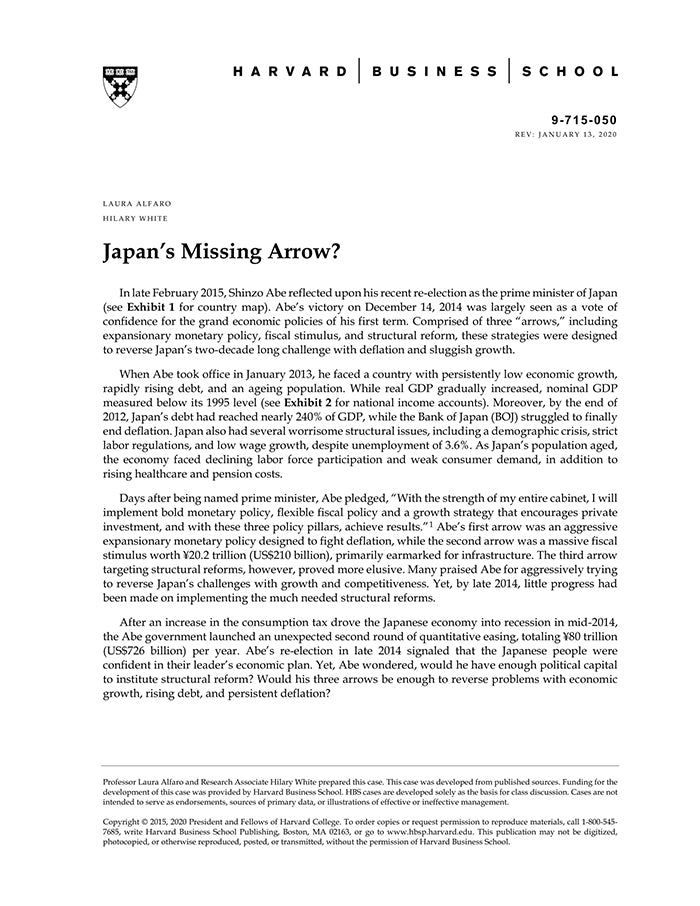Japan's Missing Arrow?
受取状況を読み込めませんでした
In late December 2014, Shinzo Abe was elected to another term as the prime minister of Japan. His re-election was largely interpreted as a vote of confidence for his economics policies, collectively referred to as "Abenomics." Comprised of three "arrows," including expansionary monetary policy, fiscal stimulus, and structural reform, these strategies were designed to reverse Japan's two-decade long challenge with deflation and sluggish growth. Japan also faced several worrisome structural issues, including a demographic crisis, strict labor regulations, and low wage growth, despite low unemployment, in addition to a debt balance that reached 240% of GDP. As the Abe government launched a second round of quantitative easing, totaling 80 trillion per year, many wondered, would Abe's three arrows be enough to reverse Japan's problems with economic growth, rising debt, and persistent deflation?
【書誌情報】
ページ数:35ページ
サイズ:A4
商品番号:HBSP-715050
発行日:2015/4/5
登録日:2020/3/3


